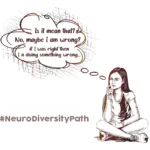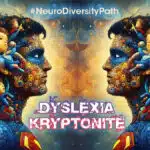ADHD is a complex condition extending beyond stereotypes of hyperactivity and distractibility. Symptoms include pervasive inattention, hyperactivity, and impulsivity, profoundly impacting daily life and interpersonal dynamics, especially within relationships. ADHD challenges conventional expectations of attention and self-regulation, making adherence to societal norms difficult. In relationships, attention inconsistencies may be mistaken for indifference, struggles with tasks as negligence, and emotional volatility as hurtful. Understanding ADHD within relationships requires exploring its nuanced influence on trust, communication, and intimacy. Bridging the gap between ADHD challenges and the universal desire for connection demands awareness, empathy, and tailored strategies.
Challenges and Considerations
Communication Hurdles
ADHD can lead to misunderstandings and frustrations in communication. The partner with ADHD might forget important dates or conversations, leading to feelings of neglect or unreliability in the relationship.
Emotional Regulation
Individuals with ADHD often experience emotions more intensely and may struggle with regulation, leading to impulsive reactions and conflicts.
Managing Responsibilities
The uneven distribution of household chores and responsibilities can become a source of contention, as the partner with ADHD might struggle with task initiation and completion.
8 Key Strategies for Thriving in a Relationship with ADHD

1. Open Communication
Open and honest communication stands as the cornerstone of any thriving relationship. Its importance grows even more when navigating the intricate dynamics introduced by ADHD. In a relationship touched by ADHD, clarity becomes vital. Misunderstandings can arise easily, and symptoms may obscure intentions. Thus, prioritizing transparency is essential.
Engaging in open conversations about how ADHD affects daily life helps partners better understand one another. By fostering clear communication, couples can navigate misunderstandings and ensure both partners feel heard and supported.
2. Education and Understanding
Education about ADHD is a critical pathway for both partners. This journey goes beyond a basic understanding of symptoms and explores how ADHD shapes thoughts, emotions, and behaviors. By learning together, partners can gain the tools to manage ADHD’s impact on their relationship.
Understanding ADHD means recognizing the difficulties with executive function, emotional regulation, and attention. This deeper comprehension helps develop empathy and create effective strategies for managing these challenges.
3. Structured Routines and Organization
Implementing structured routines and organizational systems is a powerful strategy for managing ADHD symptoms. Clear schedules bring a sense of order and predictability, which can reduce stress. Consistency in routines helps ensure that important responsibilities are met, creating stability in the relationship.
Both partners should collaborate on creating organizational systems that work for them, fostering a sense of shared responsibility and teamwork.
4. Focusing on Strengths
Every individual brings unique strengths to a relationship. In the context of ADHD, it’s important to focus on each partner’s positive attributes rather than allowing challenges to overshadow them. Celebrating each other’s strengths helps build a more balanced dynamic where both partners feel valued.
Shifting the focus toward what each partner contributes can strengthen mutual respect and create a positive environment in the relationship.
5. Professional Support
Seeking the guidance of therapists or counselors who specialize in ADHD can be invaluable. These professionals offer tailored strategies that help couples navigate the unique challenges ADHD presents in relationships. Professional support can clarify and help both partners develop better communication and understanding tools.
Therapists can also help couples address emotional dysregulation and attention difficulties, offering insights reinforcing the relationship.
6. Patience and Understanding
Patience is essential in a relationship affected by ADHD. Symptoms can fluctuate, creating unpredictability in daily life. Both partners must remain patient, recognizing that progress involves successes and setbacks. Empathy plays a vital role in navigating these ups and downs together.
This patience requires a commitment to responding with understanding, even during challenging times. It’s a constant effort to maintain support and kindness.
7. Emotional Support and Validation
Providing emotional support and validation is key. Individuals with ADHD often experience intense emotions and benefit from a partner who listens and acknowledges their feelings. Building emotional intimacy can strengthen the relationship and foster a deeper connection.
By creating a safe space for open communication, couples can navigate ADHD challenges with greater resilience.
8. Self-Care and Individual Support
Self-care is crucial for both partners. Managing stress through healthy outlets such as exercise, hobbies, or mindfulness can mitigate relationship tensions. Prioritizing well-being helps partners bring their best selves to the relationship, enhancing mutual support.
Investing in self-care ensures that both individuals feel emotionally and mentally supported, contributing to a healthier, more balanced partnership.
“In the journey of love intertwined with the complexities of ADHD, let patience be our compass, understanding our guiding light, and self-care our steadfast anchor.”
– Unknown
Building a happy relationship with ADHD involves navigating unique challenges, but it also provides growth opportunities. Couples can create a supportive environment that nurtures love and respect by embracing strategies that cater to both partners’ needs. As we continue to learn and adapt, How can we innovate our approaches to ADHD in relationships to ensure love flourishes?





